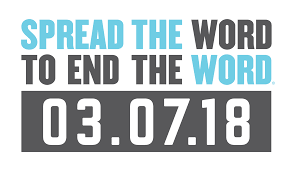The author and his sister, Little Lobbyists Ben and Claire Smith
Best Friend on Wheels shaped me because it taught me that it is okay to have a sister with a major disability. Before I read this book, I thought it was not okay to have a sister with a disability. Although I am ashamed to admit it now, I was embarrassed by my older sister Claire who has a microduplication of chromosome two, uses a wheelchair, is autistic, and has many other medical issues.
You may ask how did this book teach me that it was okay to have Claire as my sister? Best Friend on Wheels taught me this because it is a book about a girl with a similar disability. At the beginning of the book Sarah, a girl with a disability, rolls into the classroom and a girl stares at her wheelchair but does not look at Sarah. At first, she looks away, embarrassed that she might say something wrong and hurt Sarah’s feelings. This is like when I was younger and I always stared at Claire’s wheelchair and thought that she would not be able to play with me. Now I am ten and I think of Claire’s wheelchair as a neat accessory like a piece of jewelry rather than as something that makes her different.
A lot of people stare at Claire when we walk to a toy store in our neighborhood and think that she cannot communicate what she wants. This reminds me of a part of Best Friend on Wheels when Sarah and her friend go to get ice cream and the lady at the counter asks Sarah’s friend what would she like thinking that because Sarah has a disability she cannot talk. Although my sister cannot talk, she can point and let us know which toy she wants that way, but people do not always give her the chance to do so.
Best Friend on Wheels showed me that people underestimate kids with disabilities all the time, not just my sister, and that I had to speak up for my sister so that people would realize what she is capable of. I’ve continued to do this by going to Capitol Hill and rallies to speak up for kids with disabilities and will do so for the rest of my life.
When the girl in Best Friend on Wheels becomes friends with Sarah, it is not because she feels bad for her for being in a wheelchair, but because of her pins showing that she is a “ROCKHOUND.” This may seem unimportant, but it is very important because it shows that people with disabilities can like the same things as people who do not have disabilities. The girl in the book did not notice Sarah’s pins at first because she was too busy staring at Sarah's wheelchair. When she does look beyond Sarah’s wheelchair she realizes they both collect rocks and have a lot of other things in common too. This showed me that people with and without disabilities can have a lot in common if they just take the time to talk to each other, even if what they have in common is just watching movies or reading books.
Best Friend on Wheels taught me that it is okay to have a sister with a major disability because it showed me that a person with a disability can do everything people without disabilities can do too. Just like the two friends in the book, I have learned that I can do everything with my sister Claire that my friends can do with their siblings. We enjoy going to amusement parks, eating ice cream together, swimming, and playing games.
Thanks to Best Friend on Wheels I stopped being embarrassed that my sister had disabilities and realized how much fun I could have with her. Now she is one my best friends. I am so glad I am not missing out on having so much fun with her just because of her wheelchair.
Ben's essay was a finalist in the Library of Congress' 'A Book That Shaped Me" contest. He was recognized for this accomplishment at the National Book Festival in Washington, DC on September 1, 2018
Click here for a link to where you can purchase the book, Best Friend on Wheels by Debra Shirley.






